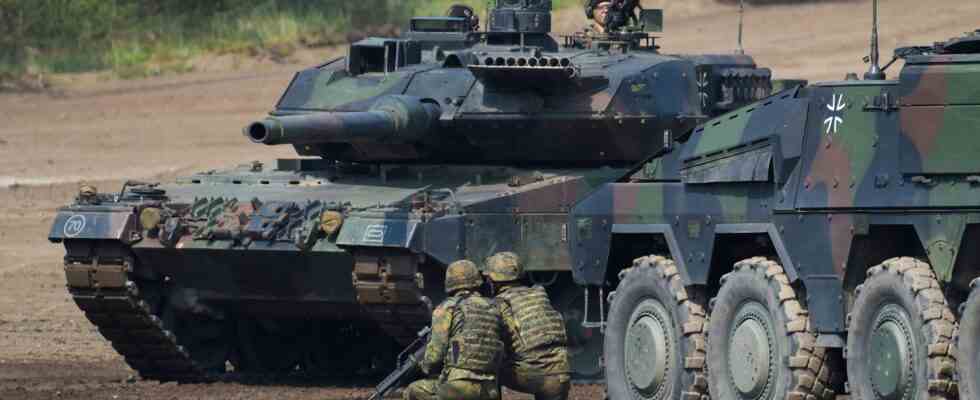interview
As of: 01/26/2023 7:03 p.m
The primary goal of NATO is to prevent a Russian attack on Alliance territory, says Lieutenant General Sollfrank. To do this, deterrence must take place, explains the NATO commander in an interview tagesschau.de.
tagesschau.de: How is the cohesion in the NATO alliance – almost a year after the start of the Russian war of aggression in Ukraine?
Alexander Sollfrank: From the point of view of NATO, and I am deployed as NATO commander in Ulm, the alliance has been very united since February 24, 2022 and has reacted very quickly. It is precisely this unity that is very important. 32 nations, when Sweden and Finland are accepted into NATO, will stand shoulder to shoulder, side by side and have initiated and implemented all measures in a very deliberate and concentrated manner.
To person
Lieutenant General Alexander Sollfrank heads the Multinational Operational Command in Ulm. There, in the Wilhelmsburg barracks, global crisis management operations are planned on behalf of the United Nations, NATO and the EU, such as the deployment and supply of troops in the alliance area.
tagesschau.de: Exactly what measures were taken to respond to the Russian war of aggression?
Sollfrank: Very quickly around 40,000 soldiers were placed under the supreme command of the supreme strategic commander, that is around 130 aircraft and around 140 ships under his command.
And with that – and this is an important signal that has been sent – Russia has received the message not to expand this war beyond Ukraine into NATO territory. I think that was a very clear signal of unity and we are now building further on this basis.
tagesschau.de: So your goal is deterrence?
Sollfrank: Our job is to do everything we can to prevent the conflict from spreading, in other words, specifically, from a Russian attack on NATO territory. And that requires deterrence, and deterrence consists of the ability to defend oneself, but also the willingness to defend oneself.
And those two components are part of a credibility we need to send east: that we are willing, but also able, to defend our Alliance territory. That’s what we’re currently doing with our deliberations, and NATO is currently making further adjustments to its concrete plans. Additional forces, larger forces, are planned so that a Russian attempt is avoided as far as possible.
tagesschau.de: What can one imagine under the concrete defense plans?
Sollfrank: In order to be able to plan a defense in a credible way, the capabilities of the different troop units, naval forces, air forces, land forces, must be planned out in a coordinated manner. This is done in these defense plans. The entire alliance area is considered here and, depending on the regional situation, consideration is given to how forces can be deployed there in such a way that deterrence can be successful.
tagesschau.de: How do you go about planning worldwide crisis operations?
Sollfrank: We have an operations center here, like a heart, where the information comes together. We have the entire area in mind, from the east coast of the USA to the east, from the north, the North Cape, to the Mediterranean Sea. And in this room, the corresponding troop movements are then coordinated and agreed.
tagesschau.de: Has this mission changed since the beginning of the war?
Sollfrank: no The order is the same. We do what we’re supposed to do. Of course we learn something new every day and there are always unforeseen situations, that’s completely normal. But we are developing in this way and I can only say that we are very solid in our task.
tagesschau.de: Leopard tanks will soon be delivered to Ukraine, but other weapon systems have already been deployed. How to assess their effectiveness?
Sollfrank: As far as I know, the effectiveness is extremely good. If I look at the “Gepard” tanks, another delivery is planned if I’m following it correctly, Panzerhaubitze 2000, Iris-T systems … well, Germany is helping, Germany is helping well, and very effectively. This is well received and appreciated.

